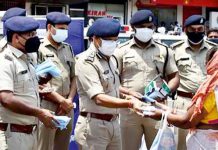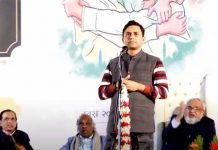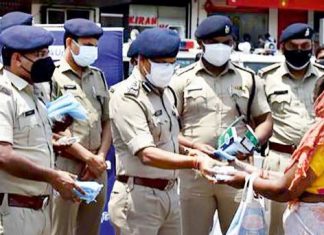
Social media has gripped a major part of the world population. As of January 2020, 3.6 billion people are hooked onto some form of social media platform or another. The various platforms like Facebook, Instagram and Snapchat, to name a few, are great avenues to connect with family and friends. On the other hand, their negative impacts are tremendous. Being addicted to them negatively impact the mental health and relationships of those afflicted. These platforms produce the neural circuitry that is caused by gambling and recreational drugs to keep consumers using their products as much as possible.
Psychologists, psychiatrists and IT experts warn that the consequences of excessive use of social media are the same as those of any other addiction: anxiety, dependence, irritability, lack of self control, etc.
The obsession with having online followers has taken a whole new level. Users are ready to pay a huge amount even if the followers provided are fake or ghost followers. There are thousands of sites providing lakh of followers if users are willing to pay a certain amount so that they can boost their page and get more visitors and followers, making them visible on these online platforms.
Understanding the current situation of lockdown and analyzing the increasing number of active social media users, Mumbai City Police have arrested an accused who claimed to be working for such a platform. They unearthed a major international racket that involves creating fake profiles on social media and dishonest activities in the media marketing business.
 According to the police, singer Bhoomi Trivedi complained that someone set up a fake profile of hers, garnering several followers. The same person had also contacted other Bollywood celebrities claiming that he manages Bhoomi’s social media accounts, which have led to an increase of her online followers. The accused contacted one choreographer as well. When this choreographer cross-checked with Bhoomi, she realised the account was a fake one.
According to the police, singer Bhoomi Trivedi complained that someone set up a fake profile of hers, garnering several followers. The same person had also contacted other Bollywood celebrities claiming that he manages Bhoomi’s social media accounts, which have led to an increase of her online followers. The accused contacted one choreographer as well. When this choreographer cross-checked with Bhoomi, she realised the account was a fake one.
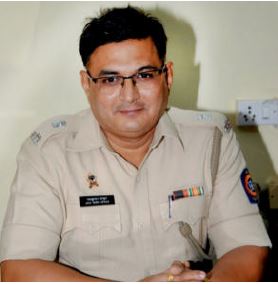 Leading to this complaint, the Mumbai Police formed a Special Investigation Team (SIT) under the supervision of Deputy Commissioner of Police, Nandkumar Thakur, to investigate the issue. So far, Mumbai Police have identified 54 portals selling fake profiles. They have information that about 100 such portals are selling fake followers. The police have taken up the investigation and a case has been registered at Bangur Nagar Police Station. One person has been arrested and confessed that he works for a portal called Followers Kart.
Leading to this complaint, the Mumbai Police formed a Special Investigation Team (SIT) under the supervision of Deputy Commissioner of Police, Nandkumar Thakur, to investigate the issue. So far, Mumbai Police have identified 54 portals selling fake profiles. They have information that about 100 such portals are selling fake followers. The police have taken up the investigation and a case has been registered at Bangur Nagar Police Station. One person has been arrested and confessed that he works for a portal called Followers Kart.
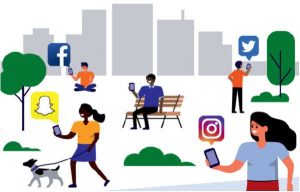 “Out of the 54 identified portals, one is Followers Kart. It’s an international firm. The arrested accused was a reseller of this company. The accused is a college dropout. Last year, someone told him how he can make money by selling fake followers via this firm. In the last one year, the accused has made 9,000 USD (approximately Rs 9 Lakh) by creating more than five lakh fake followers for a total of 176 profiles on Instagram, Tiktok, Facebook and other social media platforms. This accused sold fake followers to many directors, choreographers, celebrity make-up artists and sports personalities,” said a police officer attached to this case.
“Out of the 54 identified portals, one is Followers Kart. It’s an international firm. The arrested accused was a reseller of this company. The accused is a college dropout. Last year, someone told him how he can make money by selling fake followers via this firm. In the last one year, the accused has made 9,000 USD (approximately Rs 9 Lakh) by creating more than five lakh fake followers for a total of 176 profiles on Instagram, Tiktok, Facebook and other social media platforms. This accused sold fake followers to many directors, choreographers, celebrity make-up artists and sports personalities,” said a police officer attached to this case.
The investigation thus far has revealed that these fake followers are created either manually or by using bots, which is a software application that is programmed to do certain tasks automatically. The police say that they have unravelled such a racket in India for the first time and that the racket has international ramifications. They also added that these fraudulently-created profiles and followers are being used to create rumours and panic amongst society.
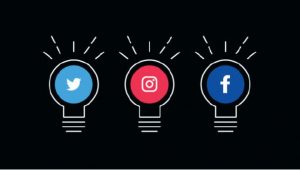 “We have formed a SIT, and apart from Crime Branch officials, we have officials from the Cyber Cell who are also involved in these investigations. There may be over 100 such social media marketing groups that we have found so far. We are conducting in-depth investigations and we have found out that many of them are involved in fraudulent activities. There is identity theft as well as cheating,” quoted an officer attached to the Mumbai Police.
“We have formed a SIT, and apart from Crime Branch officials, we have officials from the Cyber Cell who are also involved in these investigations. There may be over 100 such social media marketing groups that we have found so far. We are conducting in-depth investigations and we have found out that many of them are involved in fraudulent activities. There is identity theft as well as cheating,” quoted an officer attached to the Mumbai Police.
What is Social Media Addiction?
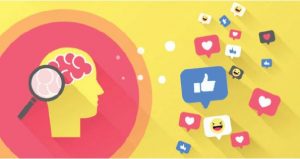 An addiction is a dependence on substances or activities that are harmful to health or psychological equilibrium. These activities include, for example, playing video games (already classed as an illness by the World Health Organisation (WHO)), obsession with work, on/offline gaming, and, for many, excessive use of social media.
An addiction is a dependence on substances or activities that are harmful to health or psychological equilibrium. These activities include, for example, playing video games (already classed as an illness by the World Health Organisation (WHO)), obsession with work, on/offline gaming, and, for many, excessive use of social media.
Recognizing Social Media Addiction
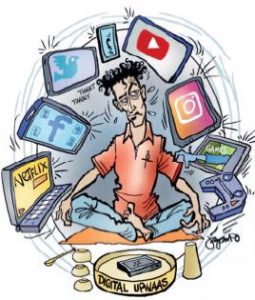 Although many people habitually use social media, very few are genuinely addicted to it. If you’re worried that someone may be at risk of developing an addiction to social media, ask yourself these six questions:
Although many people habitually use social media, very few are genuinely addicted to it. If you’re worried that someone may be at risk of developing an addiction to social media, ask yourself these six questions:
- Do you spend a lot of time thinking about social media or planning to use social media?
- Do you feel the urge to use social media more and more?
- Do you use social media to forget about personal problems?
- Do you often try to reduce the use of social media without success?
- Do you become restless or troubled if you are unable to use social media?
- Do you use social media so much that it has harmed your job or studies?
If you answered “yes” to more than three of these questions, then you may have or are developing a social media addiction.
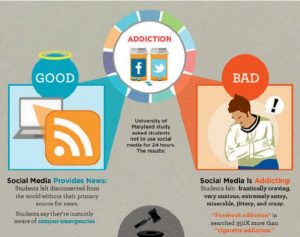 As a precaution, if you have become addictive, you need to engage in a digital detox; a period where you reduce or abstain from using electronic devices. This can include simple steps, such as turning off sound notifications and only checking social media sites once an hour. Other changes can include having periods in the day where there is self-imposed non-screen time, such as during meal times, or leaving the phone in a separate room at night for undisturbed sleep. This allows for a restored focus on social interaction in the physical world and reduces dependency on networking sites.
As a precaution, if you have become addictive, you need to engage in a digital detox; a period where you reduce or abstain from using electronic devices. This can include simple steps, such as turning off sound notifications and only checking social media sites once an hour. Other changes can include having periods in the day where there is self-imposed non-screen time, such as during meal times, or leaving the phone in a separate room at night for undisturbed sleep. This allows for a restored focus on social interaction in the physical world and reduces dependency on networking sites.
Mohit Naik

